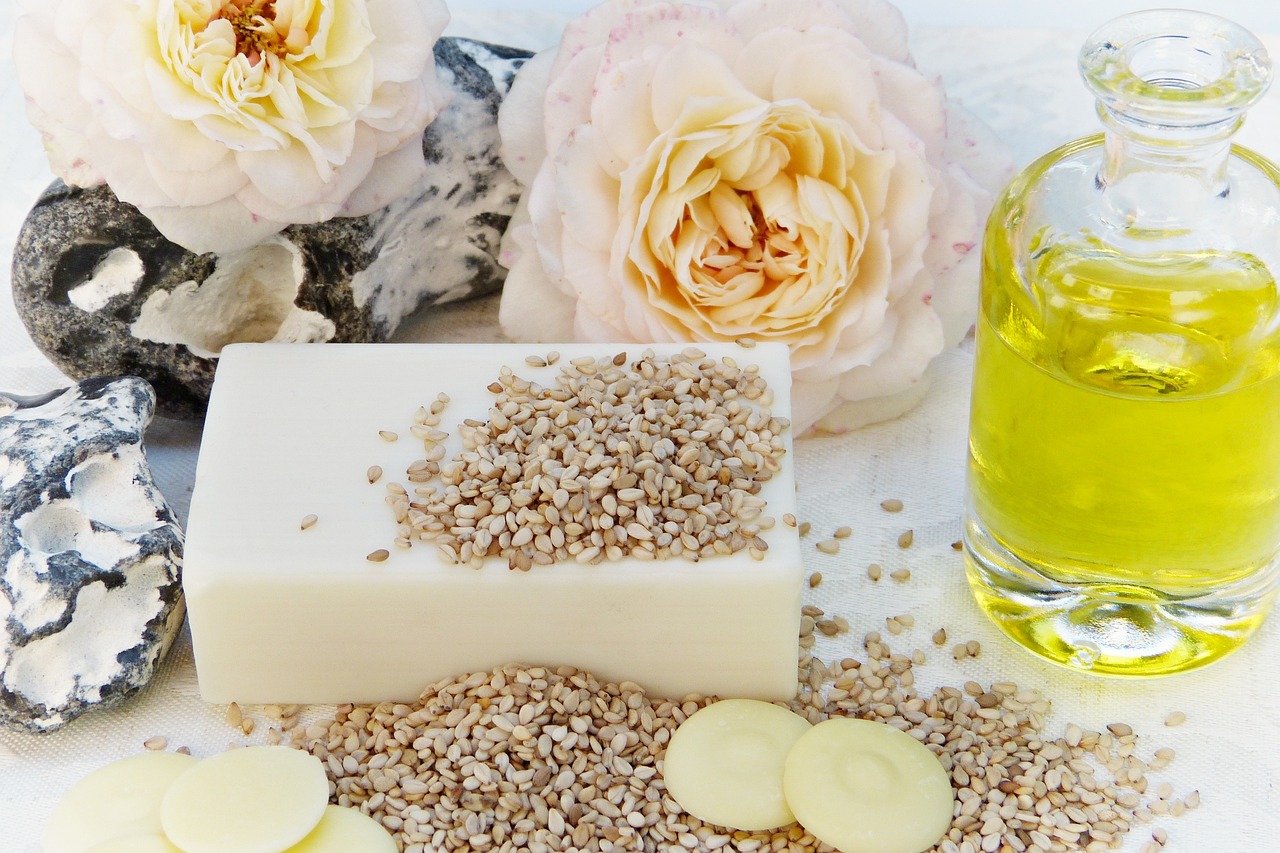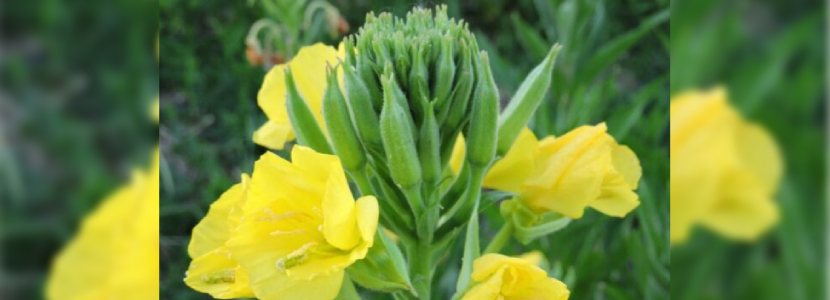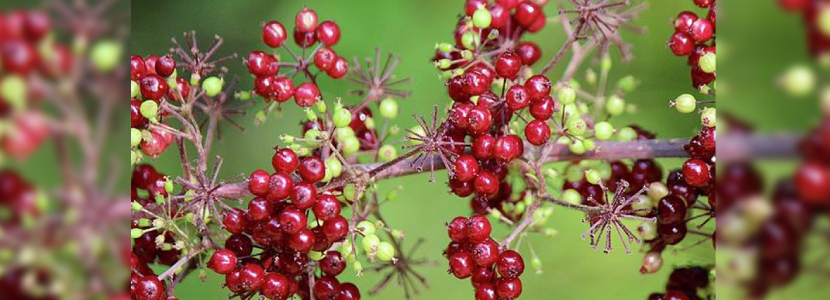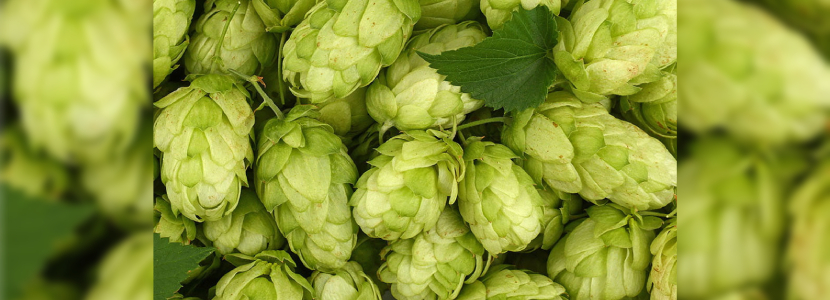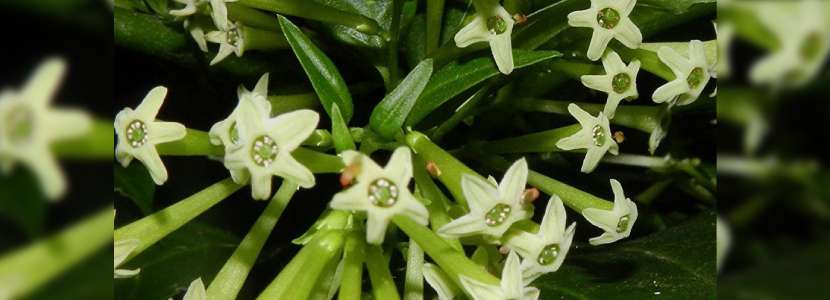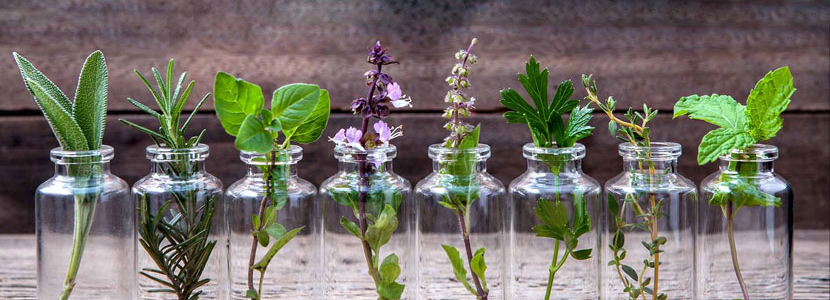In the delightful world of soap crafting, few elements captivate the senses and enhance the artistry quite like essential oils. These aromatic wonders not only infuse soaps with captivating fragrances but also offer a myriad of therapeutic benefits, turning a simple act of cleansing into a sensorial experience.
In our exploration of the craft of soap making, we’re drawn to the potent allure of essential oils —nature’s concentrated essences extracted from plants. Their role extends beyond mere fragrance; they hold the power to invigorate, soothe, and nurture both body and mind.
Throughout this guide, we’ll unravel the secrets of the top 10 essential oils that uplift soap making from a routine task to a creative, aromatic journey. Each oil possesses its own distinctive fragrance profile, therapeutic properties, and unique contributions to the art of soap crafting.
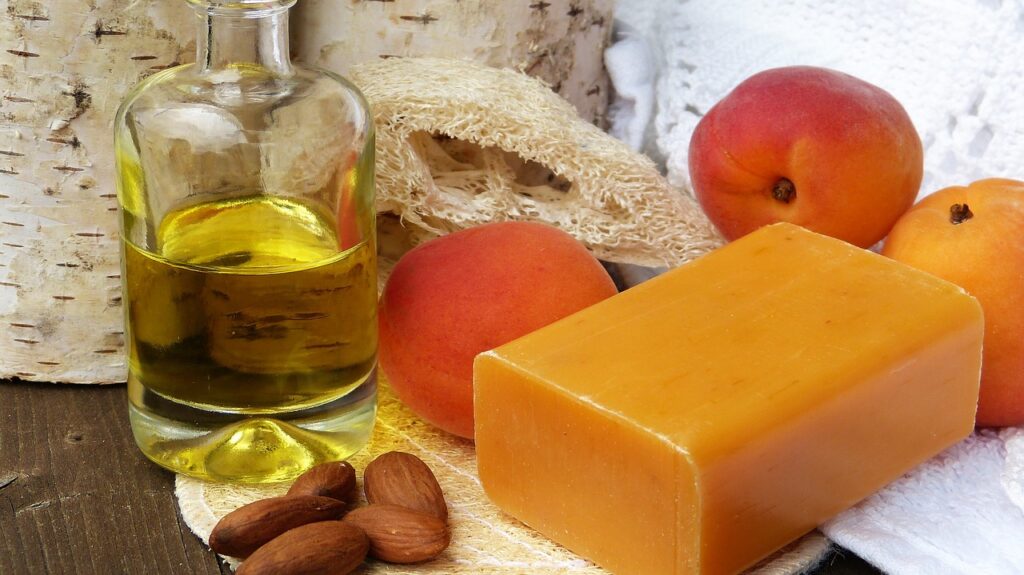
Top 10 Essential Oils for Soap Making
Essential oils bring a symphony of scents and therapeutic benefits to soap making. Here are ten natural essential oils that stand out for their aromatic profiles and contributions to crafting exceptional soaps:
1. Lavender Oil:
- Aroma: Floral, sweet, herbaceous
- Properties: Calming, soothing, antibacterial
- Soap Benefits: Promotes relaxation, gentle on the skin, and adds a classic floral fragrance.
- Therapeutic Benefits: Calming, stress-relief, promotes relaxation and sleep. Lavender oil is often used for its soothing properties, making it suitable for calming baths and bedtime routines.
2. Tea Tree Oil:
- Aroma: Medicinal, fresh, herbaceous
- Properties: Antifungal, antibacterial, cleansing
- Soap Benefits: Ideal for acne-prone skin, offers antibacterial properties, and a refreshing scent.
- Therapeutic Benefits: Antibacterial, antifungal, and cleansing properties. Tea tree oil is favored for its ability to tackle skin issues like acne and fungal infections, making it a great addition to cleansing soaps.
3. Peppermint Oil:
- Aroma: Cool, refreshing, minty
- Properties: Invigorating, cooling, antimicrobial
- Soap Benefits: Creates an awakening sensation, excellent for foot soaps, and adds a refreshing scent.
- Therapeutic Benefits: Invigorating, refreshing, and uplifting. Peppermint oil adds a cooling sensation, making it ideal for energizing soaps and foot treatments.
4. Eucalyptus Oil:
- Aroma: Fresh, camphoraceous, woody
- Properties: Decongestant, antibacterial, soothing
- Soap Benefits: Provides a spa-like experience, aids in breathing, and adds a clean, revitalizing scent.
- Therapeutic Benefits: Decongestant, clarifying, and uplifting. Eucalyptus oil is known for its respiratory benefits and is commonly used in soaps to provide a refreshing, spa-like experience.
5. Lemongrass Oil:
- Aroma: Citrusy, fresh, earthy
- Properties: Uplifting, deodorizing, antifungal
- Soap Benefits: Energizes, masks odors, and infuses a citrusy, uplifting scent.
- Therapeutic Benefits: Uplifting, mood-enhancing, and deodorizing. Lemongrass oil is cherished for its ability to uplift moods and mask odors, making it a popular choice for refreshing soaps.
6. Sweet Orange Oil:
- Aroma: Sweet, citrusy, fruity
- Properties: Uplifting, mood-enhancing, antibacterial
- Soap Benefits: Elevates mood, offers antibacterial properties, and adds a cheerful, citrusy scent.
- Therapeutic Benefits: Uplifting, mood-boosting, and refreshing. Sweet orange oil’s cheerful scent and antibacterial properties make it an excellent choice for invigorating and cleansing soaps.
7. Rosemary Oil:
- Aroma: Herbal, woody, camphoraceous
- Properties: Stimulating, clarifying, antiseptic
- Soap Benefits: Stimulates the mind, clarifies the skin, and imparts an herbal, invigorating scent.
- Therapeutic Benefits: Stimulating, clarifying, and skin-toning. Rosemary oil adds a stimulating aroma and is favored for its ability to clarify the mind and skin.
8. Cedarwood Oil:
- Aroma: Woody, warm, balsamic
- Properties: Grounding, insect-repellent, antifungal
- Soap Benefits: Grounds the senses, repels insects, and provides a comforting, woody scent.
- Therapeutic Benefits: Grounding, insect-repellent, and soothing. Cedarwood oil imparts a comforting, earthy scent and is valued for its insect-repelling qualities.
9. Ylang Ylang Oil:
- Aroma: Floral, exotic, sweet
- Properties: Calming, aphrodisiac, balancing
- Soap Benefits: Induces relaxation, balances emotions, and infuses a sweet, floral aroma.
- Therapeutic Benefits: Relaxing, mood-balancing, and aphrodisiac. Ylang ylang oil’s rich floral aroma promotes relaxation and emotional balance.
10. Patchouli Oil:
- Aroma: Earthy, musky, exotic
- Properties: Grounding, skin-regenerating, aphrodisiac
- Soap Benefits: Grounds emotions, aids in skin repair, and adds an earthy, musky scent.
- Therapeutic Benefits: Grounding, skin-regenerating, and mood-stabilizing. Patchouli oil is appreciated for its earthy scent and skin-nurturing properties.
Each of these essential oils brings its unique fragrance and therapeutic qualities to soap making, allowing crafters to create bespoke blends that cater to various preferences and skin types.
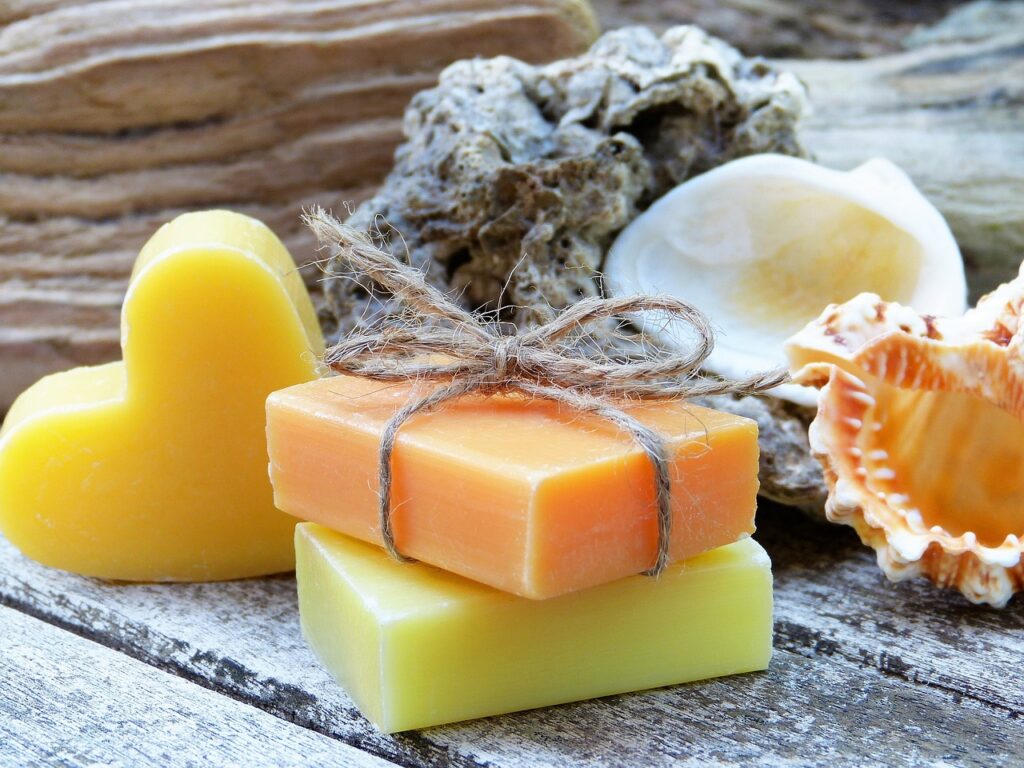
Usage Considerations and Safety
1. Dilution and Concentration:
- Importance of Dilution: Essential oils are highly concentrated and should always be diluted before use in soap making. Follow recommended dilution ratios to prevent skin irritation or sensitivities.
- Dilution Guidelines: Typically, 1-5% dilution (or as recommended) of essential oil in the total soap batch is sufficient to maintain fragrance and therapeutic benefits without overwhelming potency.
2. Skin Sensitivities and Patch Testing:
- Individual Reactions: Different people react differently to essential oils. Always conduct a patch test by applying a diluted oil on a small area of skin and observe for any adverse reactions before incorporating it into a larger soap batch.
- Sensitive Skin Considerations: Certain oils might be more sensitizing, especially for individuals with sensitive skin or allergies. Consider milder oils for such cases.
3. Proper Storage:
- Preserving Potency: Essential oils are sensitive to heat, light, and air exposure. Store them in dark, airtight containers in a cool, dry place to maintain their potency and fragrance.
4. Avoiding Photosensitive Oils:
- Sun Sensitivity: Some citrus oils, like bergamot or certain types of lime, can cause photosensitivity. Use caution when incorporating these oils into soap intended for use on skin that will be exposed to sunlight.
5. Pregnancy and Children:
- Consultation Advised: Pregnant individuals and young children may have specific sensitivities or contraindications to certain essential oils. It’s advisable to consult a healthcare professional before using essential oil-infused soaps in such cases.
6. Eye and Mucous Membrane Avoidance:
- Caution with Sensitive Areas: Essential oils should never come in direct contact with eyes or mucous membranes. Ensure that the soap is well-rinsed to prevent irritation in sensitive areas.
7. Cleaning and Spillage:
- Cleanup Precautions: Clean up any spills immediately. Essential oils can damage certain surfaces and should be handled with care.
Adhering to safety guidelines when working with essential oils ensures a pleasant and safe soap-making experience. Always prioritize safety, follow recommended dilution ratios, and consider individual sensitivities when formulating soap recipes with essential oils.
Essential oils, the aromatic gems of soap making, infuse each bar with distinctive scents and therapeutic allure. From the calming whispers of lavender to the refreshing zest of citrus, these oils not only elevate the sensory experience but also offer a canvas for personalized creations. Yet, amidst their aromatic prowess, ensuring safety through dilution and sensitivity awareness remains paramount. Let these oils inspire your soap crafting, adding a touch of nature’s essence to each lather. Here’s to the artistry of soap making, where fragrance meets wellness in every bar.

